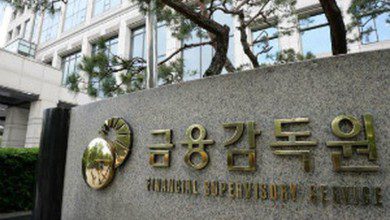
Funds Seizures on Upbit Forces Backlash from Non-Korean Traders
The past few months have not been kind for the public image of South Korea-based Upbit cryptocurrency exchange.
Late in November, the exchange was hit by a sizable hack where about $50mil in cryptocurrency was surreptitiously removed from their hot wallet during a scheduled rotation of funds. The attackers’ withdrawals slipped between a series of other equally large-volume withdrawals which likely were related to the final closing of the partnership between Upbit and Bittrex. The November hack can be pinpointed as the center of the cascade of negativity surrounding Upbit.
Since that attack, the waves of negativity have increased in intensity and frequency. For example, the exchange shut down withdrawals and deposits of all funds immediately. The community tended to agree that this was a reasonable move to make while people at the exchange tried to figure out what happened and how they could shore up their leaks.

Slowly, support for certain cryptocurrencies was regained while Bitcoin withdrawals and deposits remained down. Through December things looked to be returning to normal until Bithumb was hit with an unexpected, unprecedented, and decidedly unusual tax bill of about $60mil by the Korean tax service NTS. No such bill has been issued to any cryptocurrency exchange in Korea before nor since.
Additionally, the bill related only to the trades of foreigners’ accounts which the tax service claimed was subject to capital gains. Others in related ministries of the Korean government have indicated that in reality no current tax law applies to the trading of cryptocurrency in Korea. That is to say that there is no legal dispute to speak of between Upbit and the NTS because there is no applicable law regarding taxes on cryptocurrency in South Korea. This also lies in contrast to Upbit’s recent announcement which states that they are withholding funds until guidelines can be sent by the NTS; without any law in place, no guidelines need be set.
As a result of the Bithumb issue, only Upbit decided to shut down deposits and withdrawals again on January 1st. This time, however, the shut down applied only to non-Korean account holders’ accounts on the exchange. An announcement from the exchange detailed that foreign traders could continue trading and retrieve their funds from the platform by re-doing the KYC process. The announcement states that “[Foreign nationals currently using Upbit must visit the Upbit Lounge in person, bringing the documents necessary to confirm their status of residence and the period of stay, etc., for customer confirmation.]”
In the announcement from Upbit in regard to their reasoning for restricting deposits and withdrawals, they state initially that they are trying to comply with current KYC/AML laws. To trade on the platform, however, all users must complete a standard KYC process. The more forms of verification done, the more one can trade. Korean users are not required to complete their KYC process again. This makes Upbit’s motives behind the lock-out dubious; it is unclear how much in foreigners’ cryptocurrency and fiat is being held on the platform although the number can fluctuate since trading is still possible. Some users claim that they don’t have funds on the exchange but are being hounded by Upbit to complete KYC. Others say their phone calls imploring for funds release are ignored entirely.

There’s also no telling how long the accounts will stay locked or what the higher-ups at the exchange are doing with the funds that are locked. These questions harken to the fraud charges against Upbit officials which were recently reversed upon appeal.
Users have been told to come in person to present their documents but the process is convoluted and the results all but consistent, hinting at a lack of competence and organization at the exchange. Some users claim they attempted to KYC in person multiple times but were turned away for ambiguous reasons, another simply wanted confirmation that his funds were still on the platform which no one at Upbit would do, and one user acknowledged that even though his documents were accepted, it could be a long time before account is restored. It should be reiterated that only Upbit has gone to these measures. Even Bithumb has not restricted the accounts of foreign traders, but has filed a suit against the NTS in Korea for the tax bill.

When Coinone shut down their foreign accounts, they provided a grace period for users to withdraw their funds for several days before officially restricting foreign users in 2018. Currently Bithumb and Korbit restrict only fiat withdrawals for foreigners, while GoPax is the only known Korean exchange that allows foreigners to withdraw and deposit fiat.
The current Upbit shut down has been a source of extreme frustration for non-Korean traders who feel unduly vicitimized and just want to re-do the KYC process again in order to get back to their trading. As it turns out, this latest move by Upbit has been the largest and most impactful wave from the cascade started in November. It has been so negative that a number of foreign users in Korea have decided to attempt group legal action against the exchange.
The group is in the opening stages of the process by negotiating with law firms about the fees and the actions they specifically want to take against the exchange. The current feat they must overcome is finding enough disgruntled users to tag onto the case as that would reduce the retainer for each individual. Surely there is no short supply of unhappy foreign users since it was recently reported that over 6300 Chinese traders alone have been locked out of their funds from Upbit.

Currently across two platforms (KakaoTalk pw: upbit20 and WeChat) there are 145 people discussing their options in getting their funds returned by Upbit. That number is expected to rise as frustration grows and the group’s efforts gain momentum. Pursuing group legal action against Upbit could get the exchange to open up the accounts of individuals in the case, but would likely not force the exchange to open all accounts. While it would be nice if Upbit opened their accounts for trading for all users, a leader of the group said, “what will probably happen is Upbit quietly settles with you and you have to take everything out (forget about using Upbit again, they will find another pretext to lock your funds). They will probably also tell you to keep things quiet.”
All foreign users of Upbit inside and outside of Korea are welcome to join the group towards the ends of forcing the exchange to open foreign accounts. If enough users jump on, it becomes more and more likely that a broad-stroke action is made by Upbit rather than piecemeal settlements. As this group grows, the story will undoubtedly expand to include the next courses of action. So far there have been class action suits against other exchanges in Korea, but not against Upbit in this fashion.
This story will certainly unfold in interesting ways over the course of the next few weeks. The case will be launched in time and the legal precedents made by the case itself and the series of events that lead up to it will be watched closely and reported here.
Telegram Channel- https://t.me/TheNewsAsia
Telegram Chat (partner) – https://t.me/cryptodakurobinhooders
Twitter – @TheNewsDotAsia
Facebook – https://www.facebook.com/groups/chains.asia/
email – hello@thenews.asia




